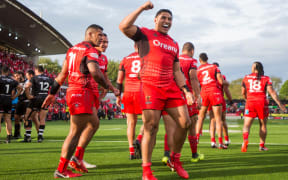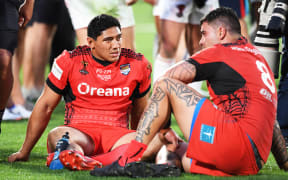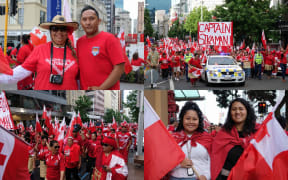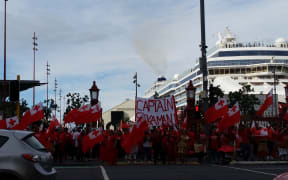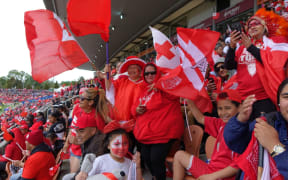Opinion - Tonga's Rugby League World Cup is now over, but questions about its final play of the tournament wil continue for some time, writes Jamie Wall.
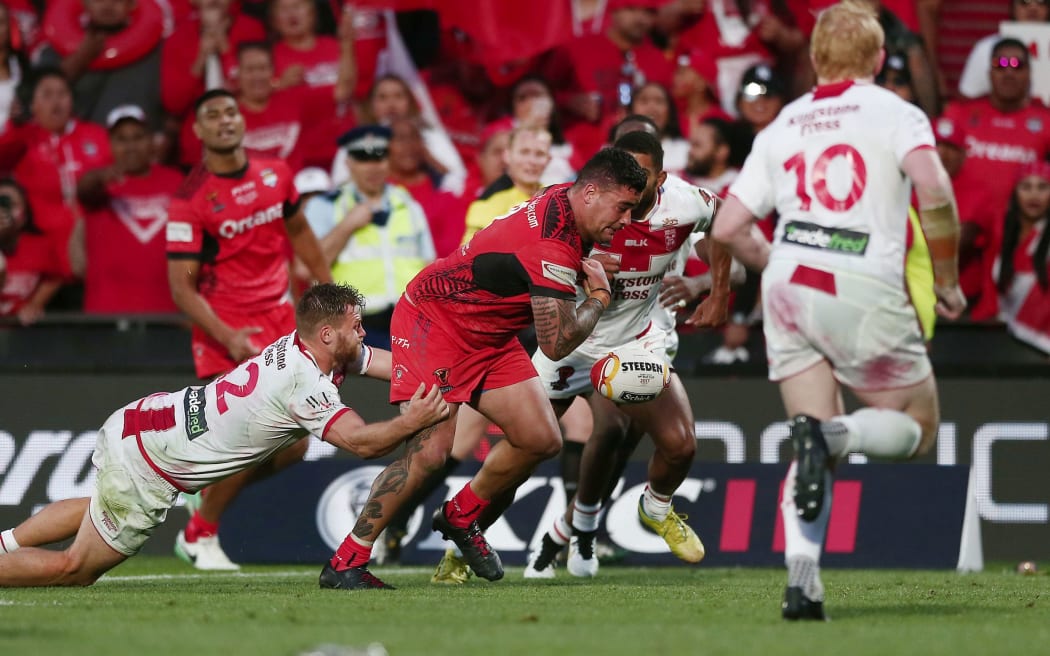
Andrew Fifita of Tonga loses the ball during the final play of the match against England. Photo: PhotoSport
The Tongan Revolution came to an explosive end on Saturday night at Mt Smart, at least on the field anyway. While parties continued long into the weekend in Ōtāhuhu and then Britomart the following evening, there was one nagging factor in the celebrations. What was the story with the last play of the game? Should it have given Tonga an improbable victory over England?
The previous 80 minutes had seen the English put together an almost perfect game plan, which came as little surprise given that they're coached by league genius Wayne Bennett. Set completion, discipline and a low error rate had given them a 20-0 lead going into the last 10 minutes. It seemed like it was just a formality until the ref would blow time off and they could start making plans to play Australia in the final.
But the 30,000 strong crowd had other ideas and roared the Tongans on to score three quick tries. First Tevita Pangai Jr finally crashed through the wall of white, then Siliva Havili ducked under a few tackles from dummy half. However, it was the monstrous Jason Taumalolo that sent the crowd into a seismic frenzy when he busted the line to send Tui Lolohea over.
So it all came down to last play, a scramble across field that found another Tongan giant - Andrew Fifita. He charged to the line from 10 metres out, lost the ball and regathered it before diving over the line.
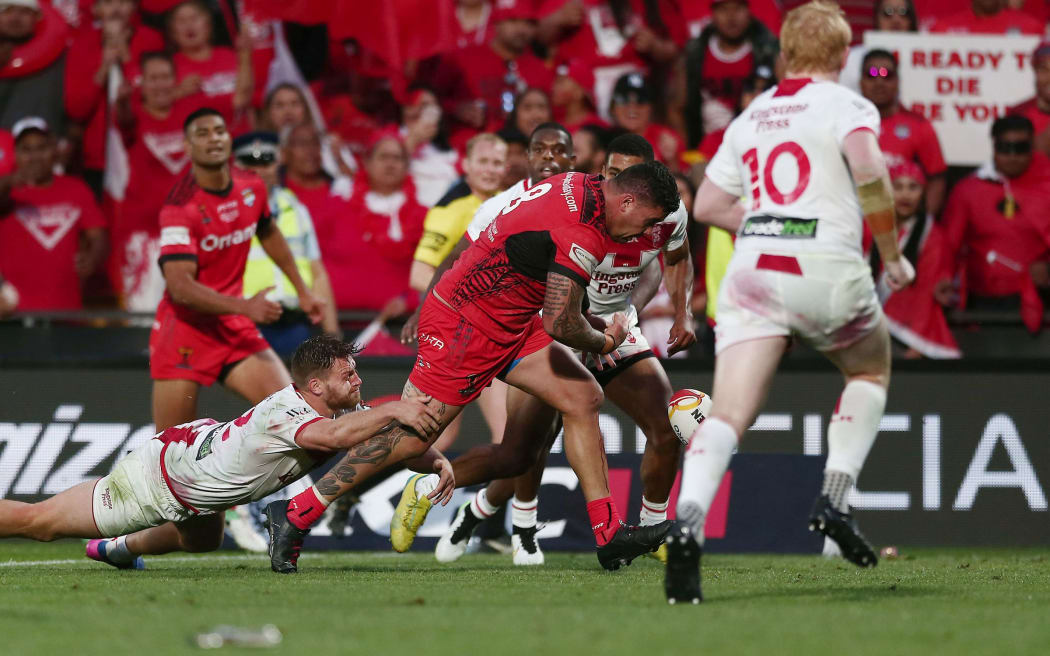
Andrew Fifita loses the ball. Photo: PhotoSport
Knock on, right? To many of the more union-familiar viewers, it looked pretty straight forward. But on the replay, it looked as though English second rower Elliott Whitehead had jolted the ball loose from Fifita's grasp. If his despairing reach had touched the ball, it would count as a strip - which means play on.
However, if Whitehead had simply got a hand on the ball carrying arm then it would be ruled as a knock on. Which is exactly the way that Matt Cecchin saw it, ruling it as such and therefore ending the game.
So was it a try?
Fifita certainly thought that was the case, as he immediately picked the ball up and dove over. This is pretty important, because if you knew you'd simply lost it and cost your team a place in the final it's doubtful that your reaction would be anything other than swearing as loud as you can.
However, from looking at the replay it's not particularly clear that Whitehead actually raked the ball out. His hand definitely comes into contact with the ball, however league does have provisions for what's known as a 'loose carry'. This is to make sure the ball carrier keeps hold of possession properly going into a tackle, otherwise the ref would be forced to blow a penalty for defenders dislodging the ball simply with the force of their contact.
That's what Cecchin ruled, basically that Fifita should've hung onto the ball and he wouldn't have lost it. Which, despite the very grey definition of the rule itself, does stack up.
However, there's just as much case for it going the other way, even precedent in an even more important World Cup match - the 2008 final where the Kiwis famously upset the Kangaroos. Benji Marshall was stripped of the ball by Anthony Laffranchi, which resulted in it travelling forward to David Fa'alogo and eventually a try to Jerome Ropati.
On looking at the replay, there's very little difference between the two plays. Which brings us to the final point: why didn't Cecchin go to the video ref?
This is the oddest part of the story, given that every weekend of the NRL is punctuated by referrals upstairs to check on even the most miniscule of offences. Every try scored from a kick is checked for offside, every grounding with a defender remotely close to the ball is checked for grounding, and many a straightforward-looking try is checked for even the slightest hint of obstruction. The World Cup was no different, and ironically Tonga benefitted from the officiousness last weekend when Lebanon were denied a second-half try that may have won them the game.
England themselves had what, at first glance, looked to be a clear double movement for a try checked earlier in the game. However, Gareth Widdop's effort to put them up 12-0 in the first half was, after looking at it again, completely legal.
The video ref may have agreed with Cecchin. He may not have. It wasn't that long ago that you'd have to put up with some mysterious ruling in any game, due to lack of replay angles and no mics on the refs.
One thing's for certain though: it didn't stop the Tongan party.

